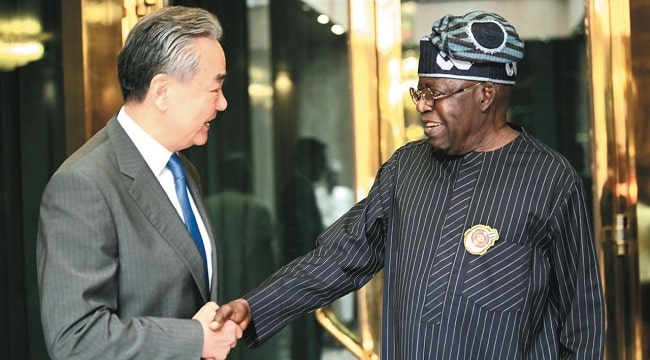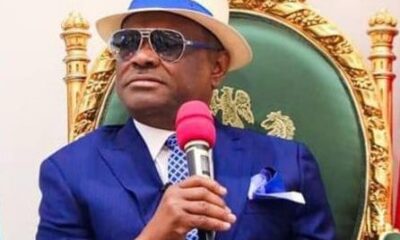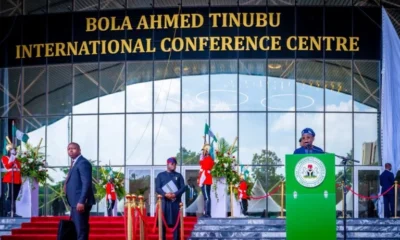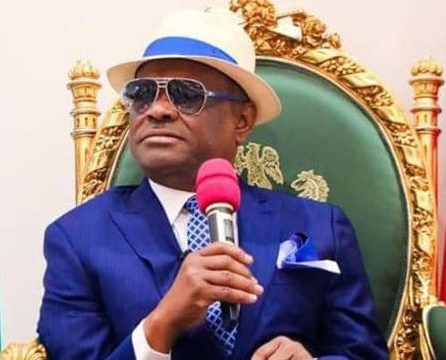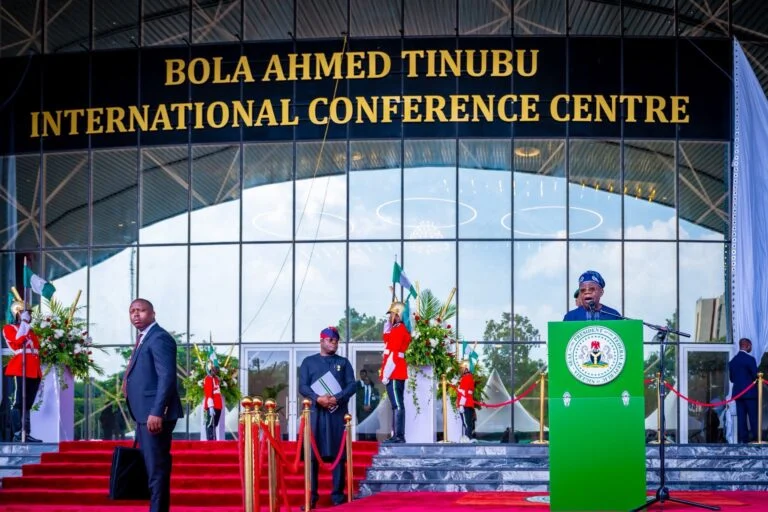FCT Minister Nyesom Wike has called on those opposing President Bola Tinubu’s administration to stop using Nigerians, insisting that only the Peoples Democratic Party has the capacity to contest against Tinubu in 2027.
He made this statement during his monthly media briefing in Abuja on Thursday.
Wike criticised the claims that Nigerians were angry, pointing out that those in the coalition were once in government and failed to improve the lives of citizens.
“I heard David Mark say, to rescue Nigeria; Nigerians are angry. David Mark was Senate President for how many terms? Two terms, is it not? Nigerians were happy. Nigerians were happy when he was Senate President for eight years. And there was no single project to Otukpo; not one. He was flying with helicopter to go to Otukpo. Nigerians were not angry then, Nigerians are only angry now.
“When Rotimi Amaechi was Minister for eight years, Nigerians were not angry. When Nigeria became indebted, Chinese loan, Nigerians were happy. It’s now Nigerians are angry. I saw Seriake (Dickson). They are saying Nigerians are angry. They want to rescue Nigeria. So I’m asking this simple question. What happened to Air Nigeria? Nigerians were happy then.
“When they went to APC in 2015 and took over the reins of power in 2023, Nigerians were happy. Was it under Tinubu’s government that banditry came? Tambuwal, you were Speaker for four years. What did you do to make Nigerians not to be angry? You were a governor in Sokoto State,” he said.
Wike said he could only accept the claim that Nigerians were angry if it came from people who had never been in power, adding that Tinubu is taking steps to improve the nation’s condition.
“When you want to go to power, tell us. If there are people who have not been in power in this country, who are coming with such an idea, I can listen to them. But not people who were the ones at the helms of affairs of this country for how many years? Look at where this country is. If this President did not take certain decisions he has taken, which may be very challenging, you would have known where we would have been by now.
“A president came and said it’s a scam; took that bold step, we will not allow that. States are getting more money. Nigerians are angry that states are getting more money. Nigerians are angry that we are providing infrastructure in Abuja. I cannot say that there are no challenges. There are challenges. But for Christ’s sake, stop using Nigerians,” he stated.
He also said that only the PDP could effectively compete with President Tinubu in 2027 if the party organises itself properly, noting that the opposition has already weakened itself.
“The opposition have even decimated themselves. Let me tell you why I said so, now you are talking about coalition. What is the coalition? The only party today, that if they put themselves well, can still challenge this government, assuming, is PDP,” Wike said.
He also remarked that Nigerians keep recycling the same leaders because they base their votes on ethnic and religious sentiments instead of evaluating candidates’ records.
“It’s your business, you the voters. Let me tell you something. I’m the FCT Minister today, is it not true? Right? If I’m supporting a party to win the election, I should be able to stand and say, this is why you should support. Tell me whether this is correct or not? You are the one to say, yes. I’ve seen what you said. I’m going to vote for that. But you, the voter, you don’t do that. You vote on ethnicity. You vote on religion,” he said.

 BIG STORY23 hours ago
BIG STORY23 hours ago
 BIG STORY2 days ago
BIG STORY2 days ago
 BIG STORY2 days ago
BIG STORY2 days ago
 BIG STORY1 day ago
BIG STORY1 day ago
 BIG STORY7 hours ago
BIG STORY7 hours ago
 BIG STORY2 days ago
BIG STORY2 days ago
 BIG STORY1 day ago
BIG STORY1 day ago
 BIG STORY2 days ago
BIG STORY2 days ago




